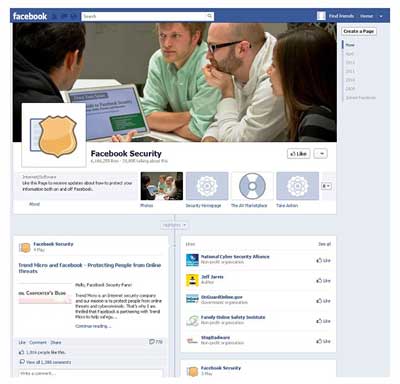当前位置: Language Tips> 双语新闻
 |
|
Released under a freedom of information request, the information sheds new light on how government analysts are instructed to patrol the internet searching for domestic and external threats(dailymail.co.uk) |
|
The Department of Homeland Security has been forced to release a list of keywords and phrases it uses to monitor social networking sites and online media for signs of terrorist or other threats against the US. The intriguing the list includes obvious choices such as 'attack', 'Al Qaeda', 'terrorism' and 'dirty bomb' alongside dozens of seemingly innocent words like 'pork', 'cloud', 'team' and 'Mexico'. Released under a freedom of information request, the information sheds new light on how government analysts are instructed to patrol the internet searching for domestic and external threats. The words are included in the department's 2011 'Analyst's Desktop Binder' used by workers at their National Operations Center which instructs workers to identify 'media reports that reflect adversely on DHS and response activities'. Department chiefs were forced to release the manual following a House hearing over documents obtained through a Freedom of Information Act lawsuit which revealed how analysts monitor social networks and media organisations for comments that 'reflect adversely' on the government. However they insisted the practice was aimed not at policing the internet for disparaging remarks about the government and signs of general dissent, but to provide awareness of any potential threats. As well as terrorism, analysts are instructed to search for evidence of unfolding natural disasters, public health threats and serious crimes such as mall/school shootings, major drug busts, illegal immigrant busts. The list has been posted online by the Electronic Privacy Information Center - a privacy watchdog group who filed a request under the Freedom of Information Act before suing to obtain the release of the documents. (Read by Emily Cheng. Emily Cheng is a journalist at the China Daily Website.) (Agencies) |
美国国土安全部近日应要求公开了用于监控社交网站和网络媒体的“敏感词”,这些“敏感词”用于防范针对美国的恐怖分子和其他威胁。 有趣的是,这份词汇表不仅包括一些显而易见的敏感词,如“攻击”、“基地组织”、“恐怖主义”、“脏弹”,还包括“猪肉”、“阴云”、“小组”以及“墨西哥”等一些看似无辜的词汇。 这份词汇表是应信息自由的要求公布的,揭示了政府分析人员如何通过网络搜索来寻找国内外安全威胁。 这份词汇表收录在该部门的2011年《分析师桌上手册》中,由美国国家运营中心的员工使用。该手册指导员工找出“对国土安全部以及其反应行动有不利影响的媒体报道”。 此前的一起针对《自由情报法》的诉讼向大家透露出分析师们是如何监控社交网站和媒体机构,获取对美国政府的“负面”评论的。而后美国国会针对从这起诉讼中获取的文件展开了听证会。美国国土安全部的官员迫于压力,公开了这本手册。 但他们强调说,搜索敏感词不是为了监控网络上抨击政府的言论以及持有异议的迹象,而是提醒潜在的安全威胁。 除了恐怖活动,国土安全部也命令分析师搜索与自然天灾、公共卫生威胁和重大犯罪相关的证据。其中重大犯罪包括购物中心和学校发生的枪击事件,大型缉毒活动以及大型非法移民破获案等。 美国电子隐私信息中心已经将这份词汇表上传到网站上,这家隐私监管组织先前根据美国《自由情报法》提出了申请,而后要求安全部门公布这份文件。 相关阅读 (中国日报网英语点津 Julie 编辑:陈丹妮) |
|
Vocabulary: shed new light: 进一步提示消息,作新的阐述 disparaging: 毁谤的,轻蔑的 |
上一篇 : 40岁以后生育的小孩更健康更聪明
下一篇 : 英女王御用替身曝光 工作24年分文不取
电话:8610-84883645
传真:8610-84883500
Email: languagetips@chinadaily.com.cn